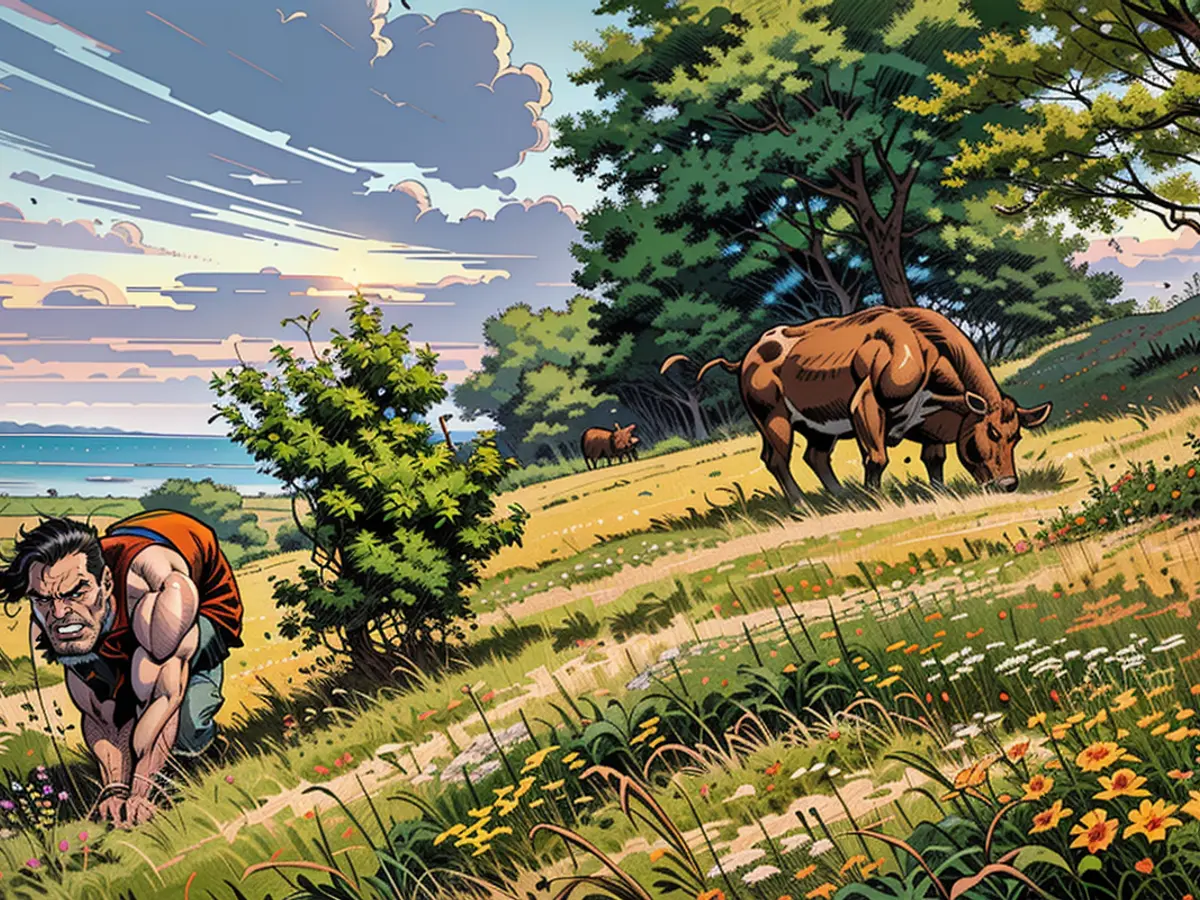Denmark will tax methane emissions from cows
To achieve climate neutrality by 2045, Denmark plans to tax methane emissions from cattle. The agricultural sector protests and fears job losses. Greenpeace welcomes, but also criticizes simultaneous tax exemptions.
Denmark aims to be the first country in the world to tax methane emissions from cows. The methane tax on methane emissions from livestock is intended to contribute to Denmark becoming climate neutral by 2045. Greenpeace speaks of a "significant step" in the fight against climate change. However, the organization for sustainable agriculture opposes the tax.
From 2030, methane emissions from cattle and pigs will be taxed at 300 Danish Crowns (40.20 Euro) per tonne of CO2 equivalent. This amount is expected to increase to 750 Danish Crowns five years later. This agreement, which the government closed with parts of the opposition, farmers, industry, and unions at the end of June, still needs parliamentary approval and will be reviewed after the summer break.
Methane is many times more climate damaging than carbon dioxide. It is mainly emitted in agriculture, especially through livestock farming. Christian Fromberg, agricultural expert at Greenpeace, sees the agreement as a "sign of hope in a time when many countries are taking back their climate protection measures." "Although the CO2 tax should be higher and introduced earlier, it remains an important step," Fromberg praised.
The environmentalist regrets, however, the "huge missed opportunity" to also "introduce a new direction for Danish agriculture." More than 60% of Denmark's land is used agriculturally, mostly intensively. This leads to large quantities of nitrogen entering the waters, which harms not only the marine flora and fauna.
2000 jobs may be lost by 2035
"As a farmer, I feel uneasy about participating in an uncertain experiment that could threaten food security," said the chairman of the Danish Sustainable Agriculture Association, Peter Kjaer. He recalled that New Zealand abandoned a similar plan due to protests from livestock farmers.
To alleviate the financial burden on Danish farmers, the plan includes a tax exemption of 60%. This means that actual costs will be reduced to 120 Danish Crowns (16 Euro) per tonne of CO2 equivalent from 2030 and to 300 Danish Crowns from 2035.
The Ministry of Economics estimates that as many as 2000 jobs could be lost in the industry as a result of the agreement. The revenues from the tax are intended to be invested in the ecological conversion of agriculture. In addition, the closure of 140,000 hectares is expected to contribute to increasing carbon sequestration in the soil and reducing the concentration of greenhouse gases in the atmosphere.
"Denmark is a myth when it comes to ecology"
"There's a myth in Denmark that we're leaders in ecology," explained Greenpeace expert Fromberg. "It's hard to argue that this agreement is historic. Instead, it's a continuation of the intensification of Danish agriculture over the past 70 years." Moreover, the agreement creates an incentive for Denmark to remain the world's largest meat producer.
Globally, Denmark is one of the largest exporters of pork - despite being only slightly larger than Lower Saxony. Pork accounts for nearly half of Denmark's agricultural exports, according to the Danish Agriculture and Food Council.
- The agricultural sector in Denmark, which contributes significantly to the country's methane emissions due to livestock farming, is opposed to the proposed methane tax on cattle and pigs.
- The Danish government's plan to levy a tax on CO2 equivalent emissions from cattle and pigs, starting from 2030, is aimed at funding initiatives to combat climate change and transition towards a more sustainable agriculture economy.
- Greenpeace applauds Denmark's decision to tax methane emissions but raises concerns about the potential impact on farmers and the missed opportunity to introduce substantial changes to Denmark's agricultural practices to combat Climate Change efficiently.








